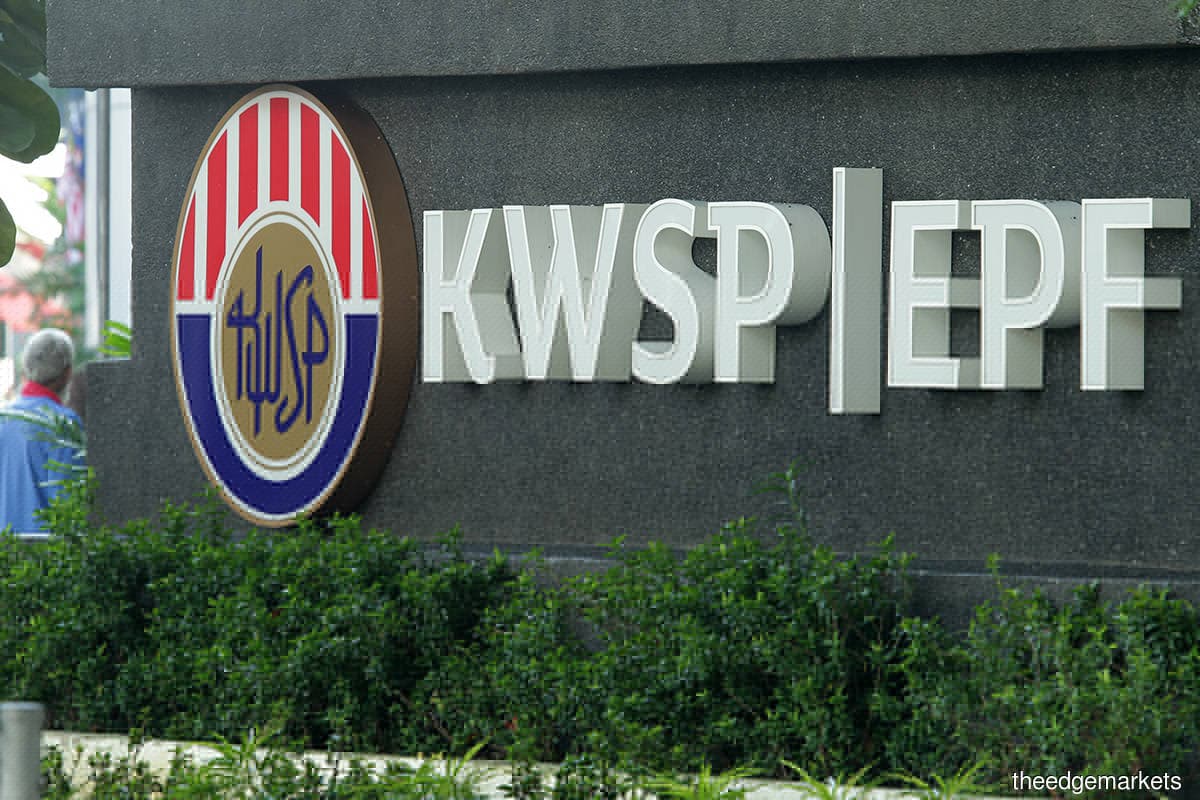
KUALA LUMPUR (Oct 7): The Employees Provident Fund (EPF) said on Friday (Oct 7) that gross investment income fell to RM11.14 billion in the second quarter of 2022 (2Q22) from RM14.77 billion a year earlier, as the EPF's global equity investment earnings dropped at a time when markets reacted to the elevated risks of slower world economic growth prospects and high inflation, in a scenario not experienced by major economies since 1970s.
For the first half of 2022 (1H22), the EPF said in a statement that cumulative gross investment income decreased to RM27 billion from RM34.06 billion a year earlier, as investors weighed factors like the Russia-Ukraine war and global interest rate hikes to curb inflation.
"Underlying these risks include the protracted Ukraine-Russia conflict, which disrupted global supply chains that sent prices soaring; the rise in global inflation rates, hitting multi-decade highs; and in-step interest rate hikes by numerous central banks, partly in response to [the] US Federal Reserve (Fed) rate hikes and partly to reel in inflationary pressures.
"These risks had been flagged at the beginning of the year; but the rate at which they materialised was unprecedented, like the magnitude and speed of the US Fed rate hikes. All these factors had intensified and resulted in most markets posting their worst first half of a year in decades, with US stocks recording their worst [performances] in more than 50 years," the EPF said.
For 2Q22, the EPF said taking into account the effect of its RM2.15 billion write-down for listed equities’ value during the quarter, the EPF’s investment income after the equities’ value write-down was about RM8.98 billion.
“Cost write down is an internal policy adopted by the EPF on its listed equity investment, as a prudent measure to ensure the health of its portfolios,” the EPF said.
For 2Q22, the EPF said equities continued to be the main contributor of the EPF’s income at RM4.88 billion, accounting for 44% of total gross investment income during the quarter under review.
The EPF’s chief executive officer Datuk Seri Amir Hamzah Azizan said in the statement that expectations of global economic growth “have suffered” caused a “persistent sell-off in the global markets”.
“The consistent downtrend impacted (the) EPF’s equity earnings, especially through global stock markets, which declined between 17% and 21% during the 1H22.
“Nonetheless, the EPF’s diversification into different asset classes, markets and currencies, as prescribed in its Strategic Asset Allocation (SAA), has helped the EPF remain resilient against turbulent market conditions and protect its long-term investment returns,” he said.
Besides equities, the EPF also invests its money in fixed-income instruments, real estate and infrastructure, private equity and money market instruments.
The EPF said its investments in fixed-income instruments, which include Malaysian Government bonds, continued to provide a steady stream of income, mitigate the impact from short-term market volatility, and offer stability to the EPF’s overall income.
“This asset class that serves a capital preservation role has been the anchor for the EPF and contributed a significant portion of gross investment income for 2Q22, at 42% of total income or RM4.73 billion,” the EPF said.
In geographical terms, the EPF said that for 2Q22, its overseas investments, which make up 36% of the fund’s total investment assets, generated RM5.51 billion in income, representing 49% of the EPF’s total gross investment income during the quarter.
As at June 2022, the value of the EPF’s assets under management stood at RM957.25 billion, after taking into account members' Covid-19 pandemic-related fund withdrawals amounting to RM44.6 billion from their EPF accounts.
“However, the EPF’s asset growth remained healthy, as contributions received amounting to RM43.23 billion as at June 2022 [was] supported by the income generated from its investments,” the EPF said.
The EPF is optimistic about Malaysia’s economic outlook, as measured by the gross domestic product (GDP).
The EPF said it believes that Malaysia’s economic recovery will continue for the remainder of 2022, following stronger GDP growth of 8.9% in 2Q22, from a year earlier.
According to the EPF, the country’s latest-reported economic data signal a strong likelihood that Malaysia’s full-year 2022 GDP growth will settle at the upper range of the official forecast of between 5.3% and 6.3%.
“Nonetheless, the EPF remains cautious of key risks that continue to rattle markets and investor sentiment such as soaring global inflation rates, geopolitical tensions and tightening of monetary policies.
“Crude oil prices have witnessed a decline amid the growing threat of an economic recession. Further aggressive interest rate hikes by central banks are also expected to slow economic growth and impact equity and fixed income markets,” the EPF said.
Amir Hamzah said in the statement that as a retirement fund, the EPF’s overarching strategy focuses on long-term sustainability of its investments and returns.
He said the EPF will take all necessary measures to ensure its financials remain strong, so that the EPF is able to withstand any volatility risks and short-term challenges.
“Markets are still very volatile, and while we are deeply concerned by these developments, we maintain our long-term and balanced approach in our investment decisions, as there are pockets of opportunities which we can capitalise on during this challenging time,” he said.
